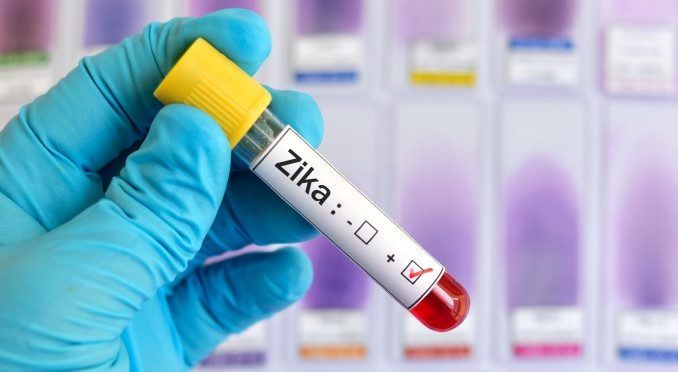
Scientists have identified the Zika virus in the saliva and urine of two infected patients, a top Brazilian biomedical research institution said on Friday.
Officials said they have launched an investigation into the possible transmission of the mosquito-borne virus through bodily fluids.
Pregnant women in Brazil are now being warned to refrain from kissing strangers, or sharing cutlery and plates with them in case they have the virus.

BYPASS THE CENSORS
Sign up to get unfiltered news delivered straight to your inbox.
You can unsubscribe any time. By subscribing you agree to our Terms of Use
Are we afraid enough yet? Ready for the vaccine?
Reuters reports: These developments come just as Rio kicks off its annual carnival celebrations, a raucous five-day bacchanalia known for street parties and lots of alcohol and kissing. Some revelers even keep track of the number of complete strangers they kiss.
Because Zika has been linked to the birth defect microcephaly, a condition in which infants are born with abnormally small heads and can suffer developmental problems, the Oswaldo Cruz Foundation scientists recommended that pregnant women take special precautions and avoid crowds during carnival.
“In light of the possibility of being in contact with someone who is infected, do not kiss, obviously,” Dr. Paulo Gadelha, the foundation’s president, told reporters.
“We cannot say today that there is no possibility of transmission,” Gadelha added.
Fiocruz, as the foundation is informally known, said it made the discovery after carrying out a partial genome sequencing of the virus found in the samples from the two patients.
“Imagine the social and economic impact of having a mega sporting event with millions of attendees with a brutal infection in the country … especially at a time we are going through an economic crisis,” said Dr. Leonardo Vedolin, a neuroradiologist in Porto Alegre.
There is no treatment or vaccine for Zika. Most infections cause either no symptoms or symptoms including a mild fever, skin rash and conjunctivitis that normally last for two to seven days, according to the World Health Organization.
Concerns over transmission methods were furthered yesterday, when news broke of two cases where the virus spread through blood transfusions.
According to the Mail Online : The health department of Campinas, an industrial city near Sao Paulo, said a hospital patient with gunshot wounds became infected with Zika after multiple blood transfusions in April 2015.
Officials said they determined that one of the people whose donated blood was used in the transfusion had been infected with Zika.
Marcelo Addas Carvalho, the doctor who is the director of the blood centre at the University of Campinas near Sao Paulo, said genetic testing confirmed that a second man who received a blood transfusion using blood donated by another man infected with Zika in March 2015 became infected with the virus, although he did not develop symptoms.
The British National Health Service (NHS) banned travelers from donating blood for 28 days after returning from countries that are currently hit by Zika in order to prevent the virus from spreading.


Be the first to comment